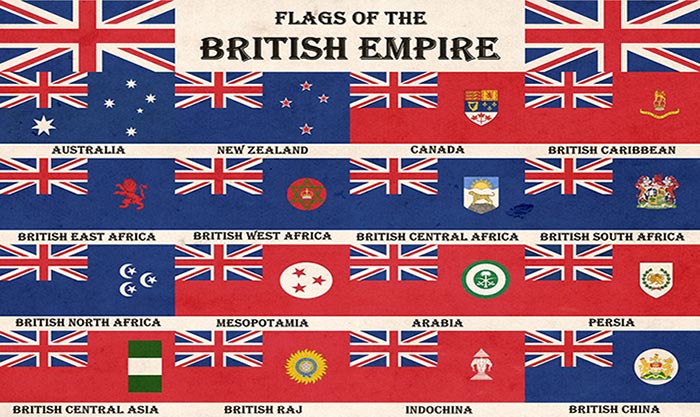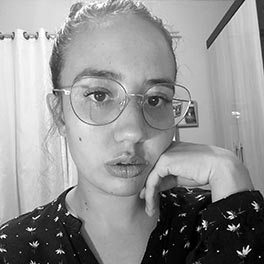Os estereótipos da língua inglesa vistos por falantes nativos - parte 1
- Isabella Caroline do Nascimento da Rosa
- 13-03-2021

- (1) Clique se também gostou!
- Tweet
No texto publicado dia 08 de Fevereiro de 2021 (‘Quem fala o Inglês correto?), falamos um pouco sobre qual seria o Inglês correto e de como essa ideia de que existe um sotaque ou uma variante ideal, é errada. Como brasileira, falo o idioma fluentemente, porém com meu sotaque próprio, que sofre influência dos sons da língua portuguesa e de diferentes pessoas com quem tive contato e tinham diferentes pronúncias. Para ampliar a visão sobre isso, decidi fazer algumas perguntas a alguns amigos que são falantes nativos do Inglês
Para o texto de hoje, conversei com o australiano Sean, 29 anos, natural de Townsville, Queensland e hoje mora em Sydney.
1 - Na sua opinião, é correto dizer que existe apenas um sotaque australiano?
Sean:
Não. Os sotaques variam de acordo com a região e o nível de instrução. Pessoas com menor nível de instrução e menos experiência com falantes internacionais (turistas, imigrantes, etc) e menos experiência com certos tipos de profissões, tendem a ter um sotaque mais forte e utilizar dialetos | formas de falar mais regionais. Eu venho de uma cidade pequena onde não há turistas, as pessoas tendem a ter o sotaque mais forte.
Além de nível de instrução, turismo e tipo de trabalho, também há formas diferentes de se pronunciar palavras. Se você for para o oeste de Townsville e para o interior do país, os sotaques tendem a ficar mais fortes, um exemplo é que no norte do estado de Queensland, as pessoas normalmente pronunciam a palavra ‘want” com o som de “O”, como se fosse “wOnt”. Porém, no sul de Queensland, é comum se pronunciar com o som do “a” mais curto - “wAnt”.
Dito isso, o sotaque australiano é consistente entre regiões, com convenções como pronunciar o ‘r’ com som de ‘a’. A palavra ‘letter’ é normalmente pronunciada como ‘lettA’, ao invés de ‘letteR’, por exemplo. Não há tantas variações como há no Reino Unido, onde podem ser encontradas linguagens bastante diferentes separadas por apenas alguns quilômetros de distância. O que existem são dialetos do Inglês Australiano, usados pelos aborígenes, que têm pronúncia bem diferente. Os sotaques australianos mais fortes tendem a ser dos descendentes dos aborígenes, porém não sei dizer o porquê.
2 - Quando você conversa com alguém de outro país, você sente que existe uma estereotipização do seu sotaque?
Sean:
Sim, claro. Isso geralmente não é mencionado durante a conversa, porque as pessoas são educadas, mas o sotaque australiano é razoavelmente difícil de entender, com o uso do ‘a’ no lugar do ‘r’ e por diversas outras razões como gírias, palavras encurtadas e jogos com palavras que são muito comuns para nós. Quando morei em outro país, tive que mudar a maneira como falo e basicamente remover meu sotaque o máximo que pude, porque era difícil para um falante não nativo me entender.
O filme Crocodile Dundee levou o sotaque australiano para o mundo (o filme é engraçado por ser fácil de se reconhecer, embora seja uma paródia), e claro, também abriu portas para paródias e estereótipos. Eu não vi muitos estereótipos do sotaque australiano, mas tenho certeza que eles existem e eu também uso alguns, por exemplo: Eyyyyyy ow ya garn? Yeaa gud u? (Seria mais ou menos: e aí, como você está?). A maioria dos australianos têm orgulho do seu sotaque único e levam a maioria dos estereótipos com bom humor.
3 - Isso te incomoda? Por que?
Sean:
Na verdade não. Eu acho que é inevitável em um mundo conectado que quando culturas diferentes se encontram haja algum tipo de exploração (incluindo piadas, estereótipos, etc). Há várias culturas sobre as quais nós fazemos piadas e criamos estereótipos na Austrália. O atendente indiano é o normal, mas não precisamos olhar tão longe para ver a estereotipização. O canadense educado, o americano burro, o indiano que fala usando gestos demais, o atendente de call center indiano. Acho que se eu parar para pensar, consigo achar estereótipos para todos os países do mundo. Eles não são necessariamente bons ou legais, mas tenho certeza que quase todas as culturas têm estereótipos com outras. Como eu disse, não conheço muitos estereótipos da cultura e do sotaque australiano, mas ficaria espantado se eles não existissem.
4 - Você acredita que o inglês falado em filmes de Hollywood (quando há um personagem australiano), representa o inglês que você fala? Por quê?
Sean:
Eu não sou especialista em filmes, mas eu diria que não. Não há muitos personagens australianos em filmes, na verdade, não consigo pensar em nenhum. Filmes australianos como Crocodile Dundee (embora seja uma paródia, a linguagem utilizada é correta), Kenny, The Nugget, todos têm o sotaque australiano genuíno. The Nugget é uma boa oportunidade para contrastar o sotaque do Eric Bana com Black Hawk Down | Lone Survivor, onde ele muda de sotaque (embora ele tenha pouco tempo em cena e o sotaque americano dele é muito ruim).
Amplamente falando, é raro encontrar um ator australiano que fala o inglês australiano no set, mesmo havendo atores australianos muito bons em Hollywood. Por alguma razão, eles ou americanizam o sotaque ou o deixam mais brando, por exemplo, Heath Ledger em The Dark Knight, Eric Bana em Lone Survivor e Black Hawk Down e Travis Fimmel em Vikings. Outros atores australianos famosos em Hollywood são Sam Worthington, Russell Crowe, Chris Hemsworth, Isla Fisher, Margot Robbie, Hugh Jackman, Cate Blanchett e Nicole Kidman.
5 - E quanto a cultura, você acredita que a cultura do seu país é estereotipada? Como?
Sean:
Claro. Toda pessoa que eu conheço de outro país em algum momento começa a falar sobre cangurus e coalas ou crocodilos e cobras. Para ser sincero, não conheço muitos outros estereótipos australianos além desses. Há um estereótipo interno de que é bem famoso aqui na Austrália do australiano que vai para Bali ou Tailândia para ser chato e se embebedar. Eles são famosos aqui, mas não tenho certeza se são conhecidos em outros países.
ENGLISH VERSION:
In the text published on 8th February (“Quem fala o Inglês correto?”), we discussed a little which English would be the correct one and how this idea of an ideal accent or variant, is wrong. As a brazilian, I speak the language fluently, however with my own accent, that has influence from the different sounds in Portuguese and from the people I’ve been in contact with and have different accents. To broaden the vision, I talked to some friends who are native English speakers
First, I spoke to the Australian Sean, who’s 29, natural from Townsville, Queensland and is currently living in Sydney.
1 - In your opinion, is it correct to say there’s only one Australian accent?
Sean:
No. Accents vary by region and by education. People with less education, less experience with international speakers (tourists, migrants etc), and less experience in certain types of professions tend to have stronger accents and a more localised dialect/way of speaking. Where I come from is a smaller city with no tourists and tends to have a stronger accent.
Separately from education/tourists/type of work, people also have different ways of pronouncing words. If you go west from Townsville to the interior of the country, the accents tend to get stronger. One example is in North Queensland, people tend to pronounce the word “want” with an “O” sound. It’s more like “wOnt”. In South Queensland however, it’s a lot more common to pronounce that word with more of a shortened “ah” sound - “wAHnt”.
Having said that, the Australian accent is broadly consistent across regions with conventions like pronouncing the “r” sound as “ah” (see: non-rhotic languages). The word “letter” is typically pronounced “lettah” instead of “letterrrr” for example. Most dialects are easily understandable. There aren’t many instances like in the UK where you get vastly different lingo a couple of hundred kilometres apart. There are dialects of Australian English used by Aborigines that have much stronger and distinct pronunciation. The strongest Australian accents by far tend to be from those of Aborigine descent. I’m not sure why this is.
2 - When talking to someone from another country, do you feel there’s any kind of stereotyping of your accent?
Sean:
Yes of course. It doesn’t usually come up in conversation because people are polite, but the Australian accent is fairly hard to understand with the use of “ah” instead of “rrr” sounds and for several other reasons like slang, shortened words and plays on words that are very common in the dialect. When I lived overseas I had to change the way I spoke and basically remove my accent as much as possible because it was difficult for non-native speakers to understand. The movie Crocodile Dundee really brought the Australian accent to the world (the movie is funny because it is very recognisable despite being a parody) and of course also opened it up to parody/stereotyping. I haven’t really seen a lot of stereotyping of the Australian accent, but I am sure that it happens and I also stereotype it myself, for example: Eyyyyyy ow ya garn? Yeaa gud u?. Most Australians that I know are proud of the unique language/dialect and take some amount of stereotyping in good humour.
3 - Does it bother you? Why?
Sean:
No it doesn’t really bother me. I think it is inevitable in an interconnected world that when different cultures meet, there is some exploration (including mockery/stereotyping etc). There are plenty of cultures that we mock or stereotype in Australia. The Indian call centre operator is typical but you don’t have to look very far to find a stereotype of a culture. Nice Canadian, Dumb American, Gesturing Italian, Indian Call Centre Operator, I think if I put my mind to it I could come up with a stereotype for every culture in the world. Those stereotypes are not necessarily very nice but I am sure every culture has a stereotype for most other cultures as well. As I said I haven’t seen a lot of stereotyping of the Australian language/culture myself but I would be astonished if it doesn’t happen.
4 - Do you feel the English spoken in Hollywood films (when there’s an Australian character), represents yours? Why?
Sean:
I’m not a film expert, but I’d say no. There are very few Australian characters in Hollywood (in fact I can’t think of a single one offhand). Australian films like Crocodile Dundee (this is a bit more of a parody film although the language is correct), Kenny, The Nugget all have quite genuine Australian accents. The Nugget is a good opportunity to contrast Eric Bana between that film and Black Hawk Down/Lone Survivor, where he switches accents (albeit with not much screen time, and his American accent is terrible).
More broadly it is rare to find an Australian actor who speaks Australian English on set even though there are plenty of really good Australian actors. For whatever reason, all actors tend to either Americanise or make their accent neutral for a lot of films, for example, Heath Ledger in The Dark Knight, Eric Bana in Lone Survivor e Black Hawk Down e Travis Fimmel in Vikings. Other famous Australian Hollywood actors are: Sam Worthington, Russell Crowe, Chris Hemsworth, Isla Fisher, Margot Robbie, Hugh Jackman, Cate Blanchett and Nicole Kidman.
5 - What about culture, do you feel like your country's culture is stereotyped? How?
Sean:
Yes of course. Every person I meet from another country sooner or later starts talking about kangaroos and koalas or crocodiles and snakes. To be honest I don’t know of many more Australian stereotypes than that. There is a pretty well known Australian stereotype internally about the Australian that go to Bali or Thailand to be an obnoxious tourist and drink too much. These are both well-known stereotypes within Australia but I am not sure they are a stereotype that foreigners typically hold about Australians.








Deixe um comentário